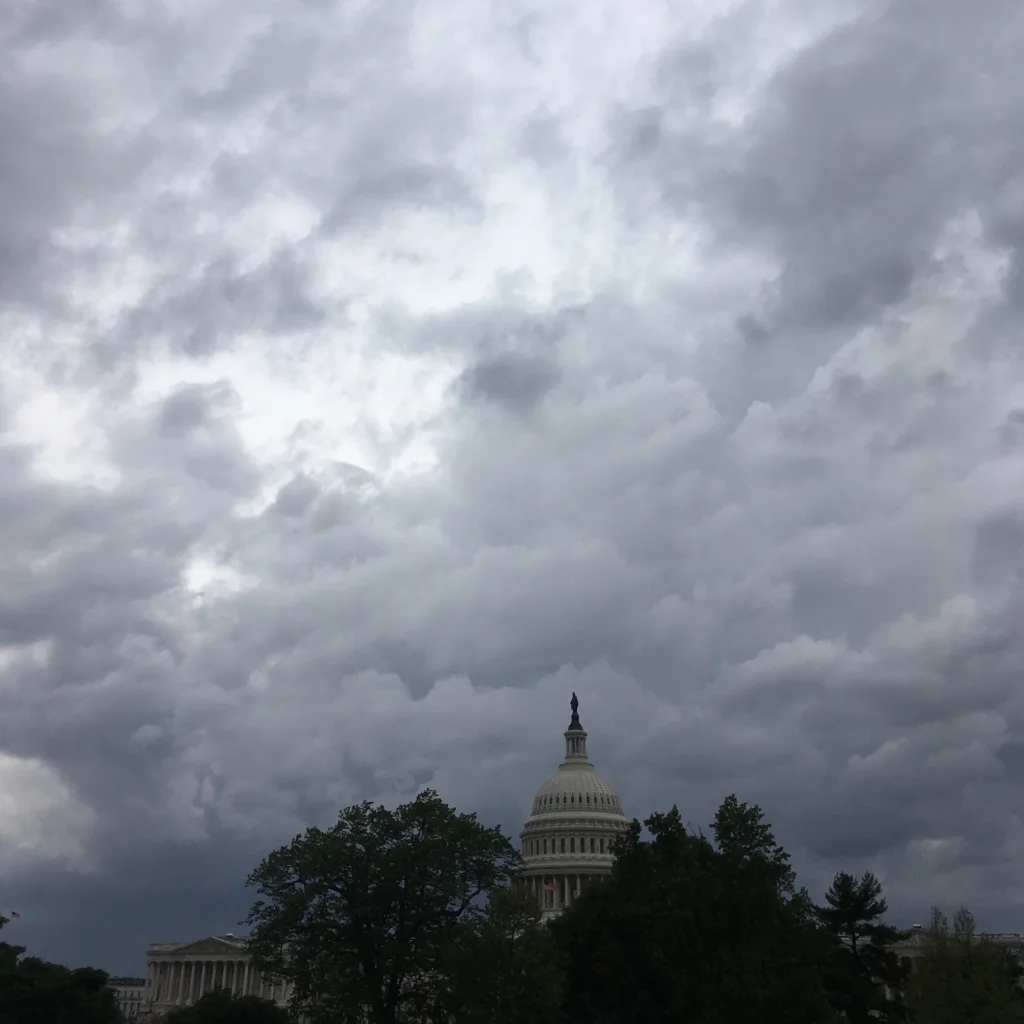On this July 4th, American Christians may be bombarded with different messages about our country and whether we ought to celebrate it. An increasingly popular message is that the United States is inherently evil, crippled by its complicated history, and ought to be critiqued more than it is celebrated. While our country can be justly criticized for evils and shortcomings in its past and present, the story need not end there. Instead, American Christians may justly celebrate and thank God for the good he has brought about in and through our country.
Critics of the United States are correct that it is flawed, both today and throughout its history. All human governments are, however, necessarily flawed due to the Fall. All humans are sinful, and governments as institutions run by sinful humans necessarily also fall short or err in various ways. These truths do not excuse evils committed by or in the United States – evil is still evil, sin is still sin. As Christians, however, we must not expect perfection from our human governments. The only perfect government we can expect to see will be the eternal rule by Jesus Christ after his return.
Critics are also right to be skeptical towards the unmeasured celebration of country, which treats the United States as the world’s greatest good. A robust debate could be had about whether the United States is the human institution that has done the greatest good in the world, but it is not itself the greatest good – that is God.
The United States instead ought to be celebrated insofar as it is a means of securing universal, God-given rights to “Life, Liberty, and the pursuit of Happiness.” These are the words of the Declaration of Independence, but properly understood, they are also compatible with Scripture.
The right to life is the most biblically straightforward of the three, as it is the logical implication of God’s commandment not to murder. This is a clear example of the Founders’ intent that government should encourage people to act in accordance with God’s moral law.
For the Christian, liberty ought to be thought of as liberty to act virtuously in accordance with God’s moral law, not license to act however one wants. The former was the position of the American Founders, the latter a misinterpretation popularized much later.
The exact meaning of “the pursuit of Happiness” is debated. Some interpreters suggest it is closely tied to property rights, others suggest it speaks of acting in accordance with natural law. Either interpretation is biblically unproblematic – property rights are logically implied from God’s commandment not to steal, and the Founders believed natural law was identical to God’s moral law revealed Scripture.
Understood as such, these three rights enshrined in the Declaration of Independence are rights to act in accordance with God’s moral law revealed in Scripture and nature – especially the laws which illustrate how to love one’s neighbor. While the United States has certainly not always lived up to the ideals set forth in the Declaration, the inclusion of such ideals in a document as foundational as the Declaration of Independence nonetheless ought to be celebrated.
May we use this day to thank God for his provision of a country where we have the freedom to love our neighbor.






Comment by David Miller on July 3, 2023 at 8:11 pm
WELL SAID!
Comment by David on July 4, 2023 at 9:07 am
The Declaration of Independence was actually a rejection of the Judeo-Christian tradition of divine-right monarchy. “Fear God and honor the king” (1 Peter 2:17) was not the motto of 1776. The leading Founders were, of course, Deists and Unitarians. Jefferson literally cut up the Bible to a form more acceptable to him. Washington, though a member of the vestry of his church, refused to take communion.
So-called “natural law” is merely the principle of reciprocity found since the earliest times—“I won’t foul your cave if you don’t foul mine.” Biblical laws are generally knockoffs of the earlier Code of Hammurabi and were set in writing during the Babylonian captivity. They actually offer little in the way of new precepts.
Jefferson lifted some of his famous lines from John Locke:
“Most scholars today believe that Jefferson derived the most famous ideas in the Declaration of Independence from the writings of English philosopher John Locke. Locke wrote his Second Treatise of Government in 1689 at the time of England’s Glorious Revolution, which overthrew the rule of James II.
Locke wrote that all individuals are equal in the sense that they are born with certain ‘inalienable’ natural rights. That is, rights that are God-given and can never be taken or even given away. Among these fundamental natural rights, Locke said, are ‘life, liberty, and property.'”
Frequently ignored was the financial indebtedness of the Colonies to England. This is thought to have amounted to more than all the money in circulation in America (over 5 million pounds). In the end, British debts were in effect never repaid. Getting rid of creditors has a long history and included the Jews, Knights Templar, etc.
Comment by Diane on July 5, 2023 at 11:02 pm
These days, whatever the institutional church says about morality is more of a joke. The Southern Baptists think it’s biblically wrong to have lady-parts occupy the pulpit. The Catholic Church agrees. I called the Southern Baptist Convention headquarters in Nashville, TN, recently, and the automated menu had an option for reporting sex abuse in the church. If the Catholic Church doesn’t have that option, it should. Please, let’s keep church and state separate. The church has too many divisions re the place of women and sex scandals/abuse.